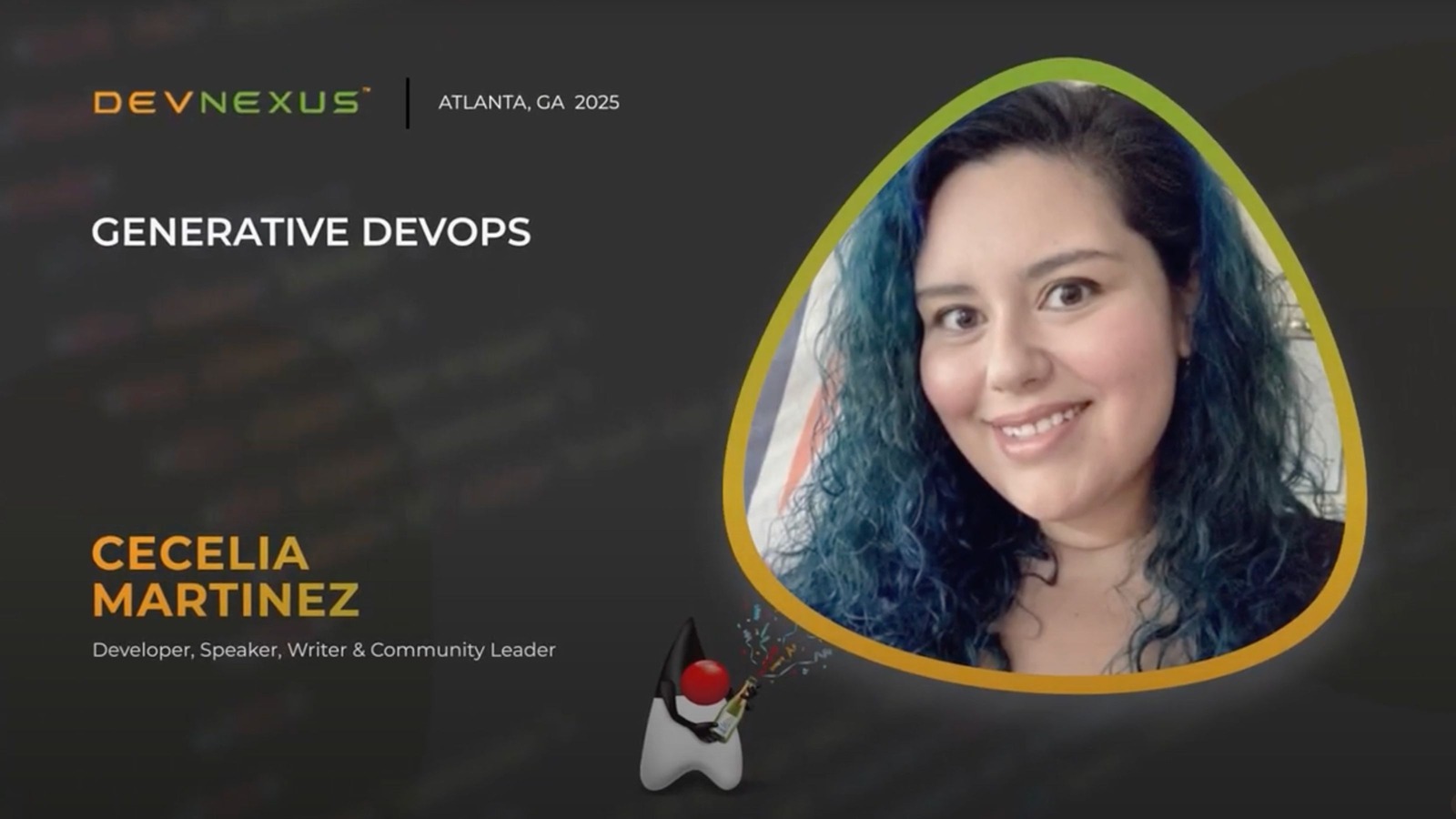Generative DevOps with Cecelia Martinez

The generative AI revolution has fundamentally transformed the Software Development Life Cycle (SDLC), but as Cecelia Martinez, developer advocate, explains in her Devnexus session, focusing solely on code generation creates new bottlenecks. While surveys show that 81% of developers use AI coding assistants and report productivity gains of 10% to 50%, these benefits can be deceptive. Quickly-generated code often leads to downstream headaches: 67% of developers spend more time debugging AI-generated code, and 68% address security vulnerabilities introduced by these tools. Martinez frames this as the central challenge of Generative DevOps: accelerating one phase of development without corresponding support across testing, deployment, and monitoring creates friction, limiting the real-world impact of AI.
To overcome these bottlenecks, the session highlighted specific AI applications across the broader DevOps pipeline. In testing, tools like Appvance AI use autonomous, codeless test generation, letting AI interact with the application as a real user would. This produces blueprints of flows and selectors, drastically reducing manual maintenance. Synthetic Data Generation further accelerates testing by producing high-fidelity, non-sensitive datasets that mimic production data. During deployment, AI-driven Continuous Verification monitors logs and metrics in real time, grouping anomalies and automatically rolling back releases when performance thresholds are violated. Finally, in monitoring, Agentic Observability leverages natural language processing (NLP) to query complex datasets, enabling faster root cause analysis with questions like “what errors have occurred in this region over the past 30 days?”
The key takeaway for developers and engineering leaders is that Generative DevOps is not a plug-and-play solution but a transformation that requires a phased, measured approach. AI should be applied where it accelerates strong workflows or addresses clear bottlenecks rather than simply speeding up weak processes, which can exacerbate issues. Governance, risk management, and data security are critical considerations, especially around sensitive data exposure during AI training. By adopting an incremental approach and focusing on testing, verification, and observability, organizations can move beyond the pitfalls of codegen and unlock the full potential of AI across the software delivery lifecycle.
🎥 Watch the full session: Watch Generative DevOps with Cecelia Martinez
Want to explore more sessions like this? Join us at Devnexus 2026 to connect with developers, learn new skills, and see how emerging technologies are reshaping software development. 🚀
devnexus.com



